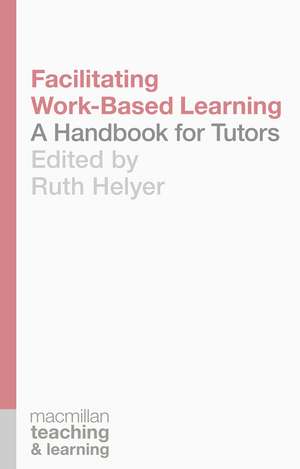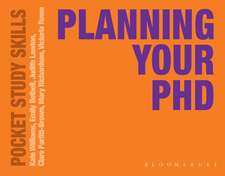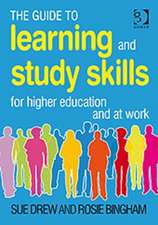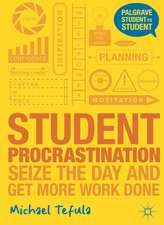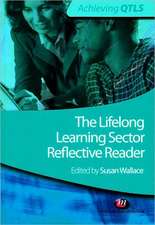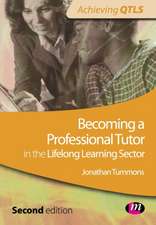Facilitating Work-Based Learning: A Handbook for Tutors: Teaching and Learning
Autor Ruth Helyeren Limba Engleză Paperback – 6 oct 2015
Preț: 260.87 lei
Preț vechi: 337.98 lei
-23% Nou
Puncte Express: 391
Preț estimativ în valută:
49.92€ • 54.21$ • 41.94£
49.92€ • 54.21$ • 41.94£
Carte tipărită la comandă
Livrare economică 22 aprilie-06 mai
Preluare comenzi: 021 569.72.76
Specificații
ISBN-13: 9781137403247
ISBN-10: 1137403241
Pagini: 296
Ilustrații: 15 bw illus
Dimensiuni: 138 x 138 x 15 mm
Greutate: 0.2 kg
Ediția:1st ed. 2015
Editura: Bloomsbury Publishing
Colecția Red Globe Press
Seria Teaching and Learning
Locul publicării:London, United Kingdom
ISBN-10: 1137403241
Pagini: 296
Ilustrații: 15 bw illus
Dimensiuni: 138 x 138 x 15 mm
Greutate: 0.2 kg
Ediția:1st ed. 2015
Editura: Bloomsbury Publishing
Colecția Red Globe Press
Seria Teaching and Learning
Locul publicării:London, United Kingdom
Caracteristici
Covers the major aspects of work based learning, including: APL; work based projects; quality assurance; and how technology can be utilised
Notă biografică
Ruth Helyer is Head of Workforce Development (Research & Policy) at Teesside University, UK and a National Teaching Fellow of the Higher Education Academy.
Cuprins
Notes on Contributors Foreword Introduction Key subjects and words 1. How does Work-Based Learning fit into Higher Education? 2. Learning, Teaching and Assessment in Work-based learning 3. Flexible Frameworks and Building Blocks 4. Negotiation and Work-based Learning 5. Recognising and accrediting prior experiential learning 6. Turning practitioners in practitioner-researchers 7. Supporting Work-based learners 8. Quality enhancement and work-based learning 9. Using social media to enhance work-based learning 10. Learning in the workplace globally 11. Learning to learn 12. A transcultural dance: enriching work-based learning facilitation 13. Promoting learning through work-based experience: mimetic learning in action Appendix 1: Ethics and the work-based learner Appendix 2: Some research terms Bibliography Index.
